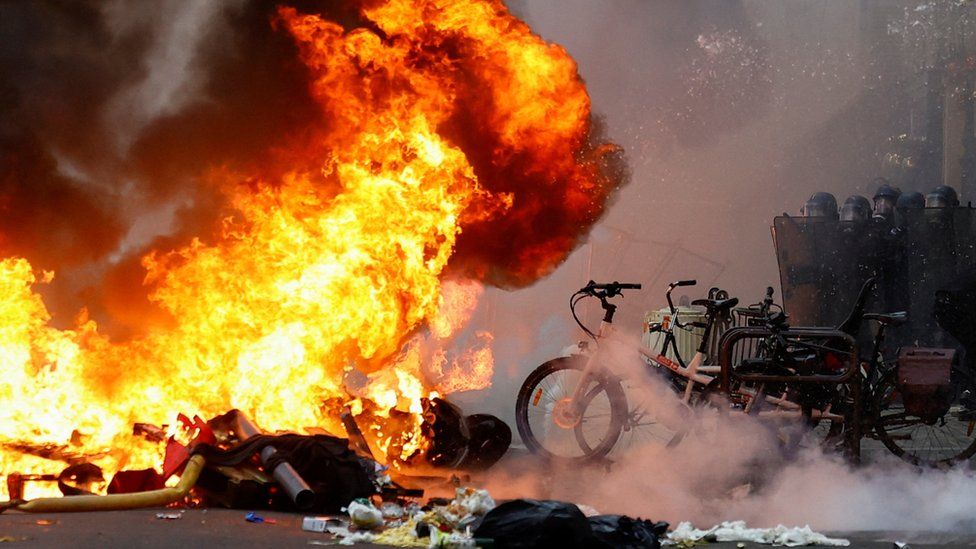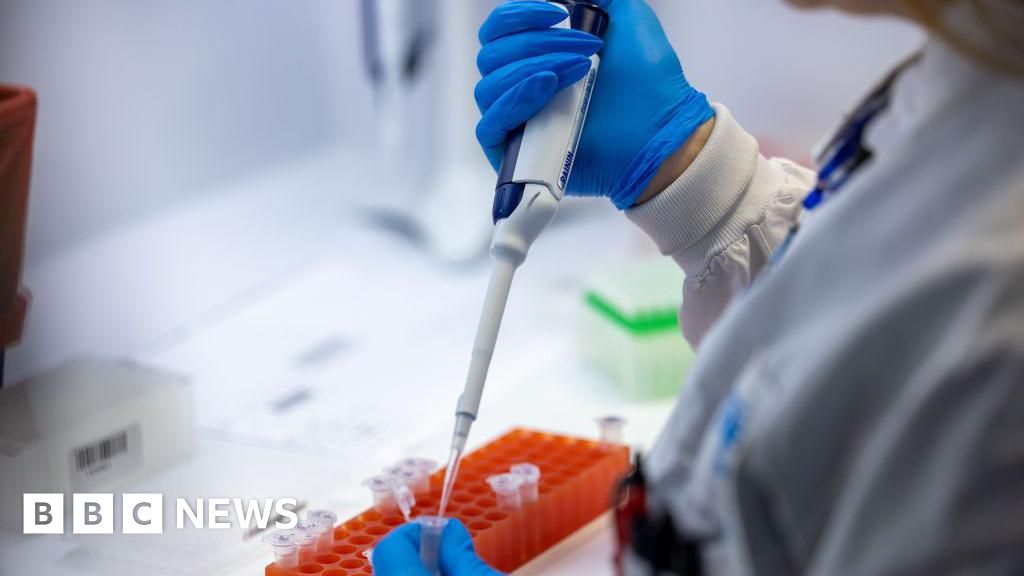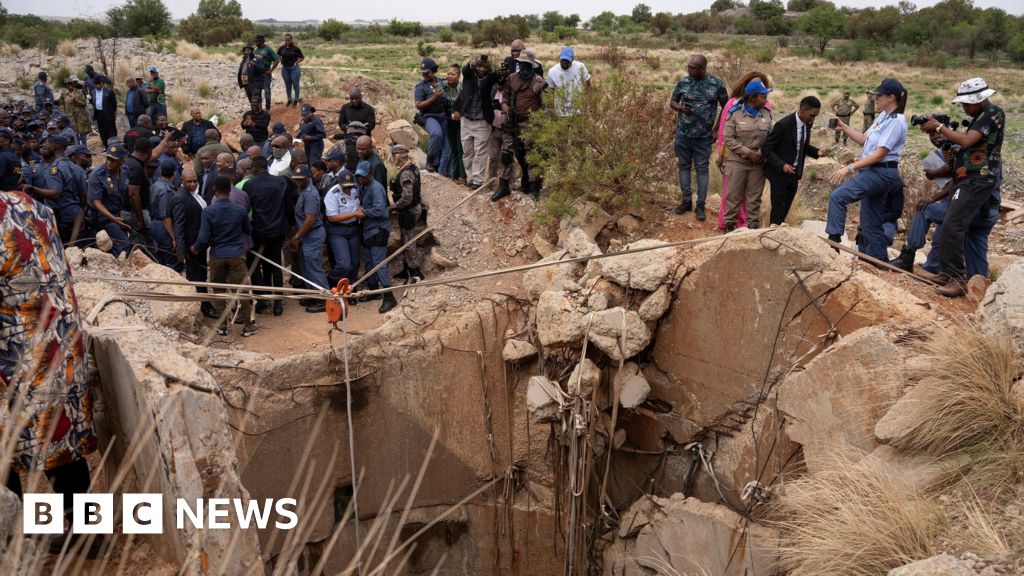ARTICLE AD BOX
 Image source, Reuters
Image source, Reuters
Violence has broken out in central Paris after Friday's deadly attack on the city's Kurdish community.
Protesters overturned cars, setting some on fire, and hurled objects at police. Officers responded by firing tear gas.
Three people were killed in Friday's attack, which took place at a Kurdish cultural centre and a restaurant.
The 69-year-old white male suspect said afterwards he was a racist who hated foreigners, a police source told AFP.
The same news agency was told that the man launched his attack with a "much-used" pistol and was found with a box of at least 25 cartridges and "two or three" loaded magazines.
Unrest began soon after the shootings. Footage showed people starting fires in the middle of the street and smashing car windows.
Police used tear gas as the protesters attempted to break through a security cordon.
Saturday's renewed violence unfolded after hundreds of Kurds gathered peacefully in the Place de la République to pay tribute to the three victims.
Police continue to question the man, a retired train driver. He is being held on suspicion of murder and attempted murder and now also faces the extra charge of acting with a racist motive.
He has a history of weapons offences and it has emerged that he was released on bail only days before the assault.
Last year, he was charged with racist violence over a sword attack at a migrant camp elsewhere in the French capital.
Witnesses of Friday's shootings in the city's 10th district said the attacker - tall, white and elderly - shot dead two men and a woman.
Three others were injured, one of whom remains in a critical condition.
Three places came under fire - the Ahmet-Kaya Kurdish centre, as well as a nearby restaurant and a hairdresser - before the suspect was arrested without a fight.
Kurds have called for better protection from the French authorities as community leaders met the Parisian police chief on Saturday.
Friday's shootings came almost 10 years after the murder of three Kurdish women activists in the French capital - an unresolved crime.
The community was again "afraid", having been "traumatised" by January 2013 murders, said a lawyer for the Kurdish democratic council in France (CDK-F).

 1 year ago
22
1 year ago
22








 English (US)
English (US)